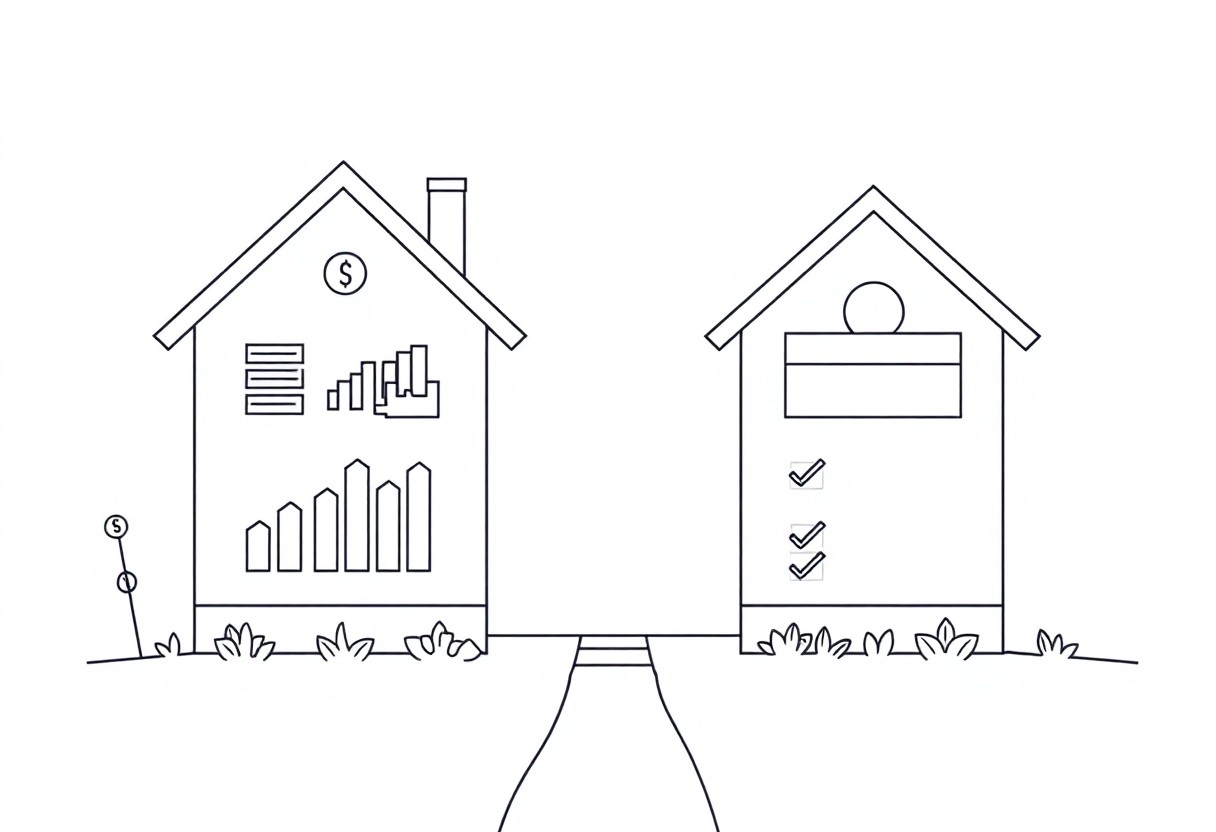Creating a Post-Divorce Life Plan – Finances, Home, and Goals
With a new chapter in your life ahead, it’s crucial to construct a solid Post-Divorce Life Plan for your future. Your finances, home, and goals will play pivotal roles in rebuilding your independence and ensuring stability. This guide will help you navigate the emotional and practical aspects of creating a life plan that not only addresses immediate needs but also sets you on a path toward long-term success and fulfilment. Embrace this opportunity to redefine your life and lay down the foundations for a brighter tomorrow.
Key Takeaways:
- Assess your financial situation by listing assets, debts, and monthly expenses to gain clarity on your current standing.
- Develop a budget that reflects new income sources and expenses, prioritising necessary costs while planning for future savings.
- Evaluate housing options, whether downsizing to reduce costs or finding a new home that supports your lifestyle goals.
- Set both short-term and long-term goals to guide your personal and professional growth, focusing on areas such as career, education, and relationships.
- Seek professional advice when necessary, whether from financial planners or real estate experts, to support informed decision-making.
Understanding Your Financial Landscape
Before exploring into your post-divorce life, it’s imperative to get a clear picture of your financial landscape. This includes understanding your income, expenses, and overall financial health. By evaluating these factors, you will be better prepared to make sound financial decisions moving forward and set realistic goals that align with your newfound independence.
Assessing Income and Expenses
Across your financial situation, take stock of all sources of income. This includes salary, alimony, and any side hustles. Concurrently, list your monthly expenses, including housing, utilities, and personal debts. Completing this assessment will give you a clearer view of your cash flow and help identify areas where you can cut back or need to allocate more funds.
Evaluating Assets and Liabilities
Before making any financial decisions, it’s important to evaluate your assets and liabilities. You should create a comprehensive list that includes all your hard assets such as properties and savings accounts while also documenting your debts like mortgages, loans, and credit card balances. This will help you understand your net worth and the financial obligations you face as you launch on this new chapter.
With a clear understanding of your assets and liabilities, you can make more informed decisions about your financial future. Assessing your total assets will highlight your financial strengths, while understanding your liabilities will alert you to potential pitfalls that could hamper your recovery. This thorough evaluation is vital in formulating a realistic plan, allowing you to focus on priorities that will enhance your financial stability.
Budgeting Post-Divorce
Clearly, navigating your finances after a divorce can feel overwhelming. Establishing a solid budget is important to regain control and ensure you meet your financial obligations while also saving for your future. It’s important to track your income and expenses meticulously, making adjustments as necessary to adapt to your new circumstances. With careful planning, you can create stability and confidence in your financial life moving forward.
Creating a Sustainable Budget
About establishing a sustainable budget, take an inventory of your current financial situation. Consider your income sources, necessary expenses, and any debts you may need to manage. By prioritizing important costs and setting realistic savings goals, you can create a budget that not only reflects your reality but also supports your long-term financial well-being.
Adjusting Financial Goals
Adjusting your financial goals post-divorce is key to achieving stability. As you transition into this new phase, reassess your priorities and determine what is most important to you. This may include debt repayment, retirement savings, or down payment contributions for future housing. By realigning your goals, you can create a path forward that aligns with your current financial landscape and aspirations.
Another significant aspect of adjusting financial goals post-divorce is recognising your new lifestyle and potential shifts in income. For example, you may experience a reduction in household income or increased expenses related to maintaining two separate households. It’s important to set achievable milestones and be flexible as your circumstances evolve. Maintaining a focus on your long-term vision can help you stay motivated, even amidst financial challenges. Prioritise building an emergency fund and reassess your investments to ensure they align with your updated lifestyle and goals.
Housing Considerations
Your living situation post-divorce can significantly influence your emotional and financial well-being. Evaluating your housing options not only provides a stable environment for your new life but also plays a critical role in shaping your financial future. As you navigate this transition, it’s important to understand the implications of each choice regarding your living arrangements.
Deciding on Living Arrangements
Around the time of your divorce, you may need to reassess your living arrangements. Consider factors such as location, affordability, and lifestyle needs. Whether moving into an apartment, staying with family, or purchasing a new home, it’s vital to choose a space that suits your personal and financial circumstances.
Selling or Retaining the Marital Home
To determine whether to keep or sell your marital home, reflect on both emotional ties and financial implications. This decision can greatly affect your long-term stability and overall satisfaction with your post-divorce life.
Hence, if you decide to retain the marital home, consider the ongoing expenses, including mortgages, taxes, and maintenance. Keeping the home can provide a sense of stability, especially if children are involved, but it can also strain your finances. Conversely, selling the home could offer immediate financial relief, helping you pay off debts or secure a new living space. Explore all options thoroughly and ensure you weigh the long-term impacts on your finances and mental well-being before making this significant decision.
Rebuilding Your Credit
To successfully navigate your post-divorce financial landscape, you must focus on rebuilding your credit. A healthy credit score is important for securing favourable loans, renting an apartment, or simply managing everyday expenses. Take the time to assess your current credit situation, correct any inaccuracies, and develop a plan to restore your financial strength.
Understanding Credit Scores
Among the factors influencing your credit score are your payment history, credit utilisation ratio, and the length of your credit history. These elements come together to form a three-digit number that lenders use to evaluate your creditworthiness. Understanding these components will empower you to make informed financial decisions as you work on improving your score.
Steps to Improve Your Credit
The journey to improving your credit score involves several strategic steps. Start by reviewing your credit report for errors and disputing any inaccuracies, as this can significantly enhance your score. Additionally, focus on making timely payments, reducing your credit card balances, and keeping old accounts open to establish a long credit history.
In addition, consider setting up automatic payments to protect against missed deadlines, and prioritise paying down high-interest debt first. Using credit responsibly is another important aspect; aim to keep your credit utilisation below 30%. Avoid opening numerous new accounts simultaneously, as this can negatively impact your score. By being patient and consistent with these steps, you can gradually elevate your credit score and enhance your financial health post-divorce.

Setting Personal and Professional Goals
Now is the perfect time to set new personal and professional goals that reflect your evolving aspirations. Take a moment to assess what truly matters to you and envision a life that aligns with your values and dreams. Whether you aim to pursue new career paths or cultivate personal hobbies, goal-setting will empower you to create a fulfilling post-divorce life.
Defining Your New Aspirations
One way to redefine your aspirations is to list out your passions and interests, allowing you to explore opportunities that resonate with your authentic self. Consider both short-term and long-term objectives that inspire you. This reflection will guide you toward a more enriching future.
Aligning Goals with Financial Plans
Personal goals must be carefully aligned with your financial plans to ensure sustainable progress. This means evaluating your current financial status and determining how much you can realistically invest in your aspirations, be it through budgeting or saving. Setting financial boundaries around your goals will provide clarity and help you stay committed.
Consequently, having a clear roadmap that ties your financial plans to your goals can help you avoid unnecessary financial stress. You may need to prioritise certain aspirations over others based on your resources, which allows for more focused efforts. Additionally, understanding the financial implications of your goals can enable you to make informed decisions that ultimately foster a sense of security. This strategic alignment is vital for achieving both personal satisfaction and financial stability in your new chapter.
Seeking Professional Support
Despite the emotional turmoil that comes with divorce, seeking professional support can be a game-changer for establishing a stable post-divorce life. Engaging with experts can provide you with crucial guidance in managing your finances, navigating housing options, and setting achievable personal goals. Their experience can help you transition more smoothly into your new reality.
Financial Advisors
Against the backdrop of newfound financial uncertainty, enlisting the services of a financial advisor can help you regain control over your financial future. They provide insightful strategies tailored to your unique circumstances, ensuring you develop a sustainable budget, prioritise savings, and invest wisely.
Legal Counsel and Mediators
Legal issues can often be overwhelming, but effective legal counsel and mediators can alleviate much of that burden. Engaging them can streamline your divorce process, resulting in a fair settlement and reducing prolonged conflict.
At the start of your post-divorce journey, enlisting legal counsel is important to navigate complex issues like custody, property division, and spousal support. Mediators can facilitate constructive dialogue between you and your ex-partner, ensuring that both of your interests are represented without escalating tensions. This professional guidance can lead to more amicable agreements and minimise emotional and financial strain. By focusing on collaboration, you can work toward a resolution that fosters a positive co-parenting relationship while safeguarding your rights.
Final Words
Upon reflecting, developing a post-divorce life plan is imperative for rebuilding your financial stability, securing your home environment, and establishing new personal goals. This process empowers you to take control of your future and create a fulfilling life tailored to your needs. Focus on assessing your finances, considering your housing options, and defining what you want to achieve moving forward. By doing so, you will lay the groundwork for a successful and satisfying chapter ahead, allowing you to thrive independently and embrace new opportunities.
FAQ on Creating a Post-Divorce Life Plan – Finances, Home, and Goals
Q: What financial steps should I take after a divorce?
A: After a divorce, it is important to reassess your financial situation. Start by evaluating your income and expenses, creating a budget that reflects your new reality. This may involve seeking a financial advisor to help you understand the implications of dividing assets and debts. Additionally, consider updating your insurance policies and retirement accounts, and establish a savings plan for emergencies or future goals.
Q: How can I effectively manage my housing situation post-divorce?
A: Managing your housing situation involves several factors. First, decide whether to keep the family home or sell it. If you choose to sell, research the housing market to find a new place that suits your needs and budget. Look into rental agreements if you’re not ready to purchase property immediately. It is also wise to assess your home equity and how it impacts your financial health. Consulting with a real estate professional can provide you with helpful insights.
Q: What kind of goals should I set for my new life after divorce?
A: Setting goals post-divorce can guide you toward a fulfilling life. Reflect on your personal aspirations, such as pursuing a new career or education, developing hobbies, or improving your health. Establish short-term and long-term goals that inspire you, and break them down into manageable steps. Write them down and review them regularly to stay motivated and track your progress.
Q: How can I balance my finances with my emotional recovery after divorce?
A: Balancing finances with emotional recovery is necessary. Take time to process your emotions and avoid making impulsive financial decisions. Create a financial plan that is distinct from your emotional state. Consider seeking support from friends, family, or counselling professionals to help you cope with the emotional aspects while remaining focused on financial responsibility. Building a support network can be beneficial during this transition.
Q: Should I involve a lawyer in creating my post-divorce life plan?
A: Engaging a lawyer can be very beneficial, especially when it comes to legal aspects of your life plan, including matters related to property division, custody arrangements, and new contracts. Even after your divorce is final, a lawyer can help ensure that your interests are protected as you move forward with your financial and personal plans. It is advisable to seek legal counsel to clarify any questions and protect your rights as you create your life plan.
Separation and divorce | Dating after divorce | Parenting After Divorce









